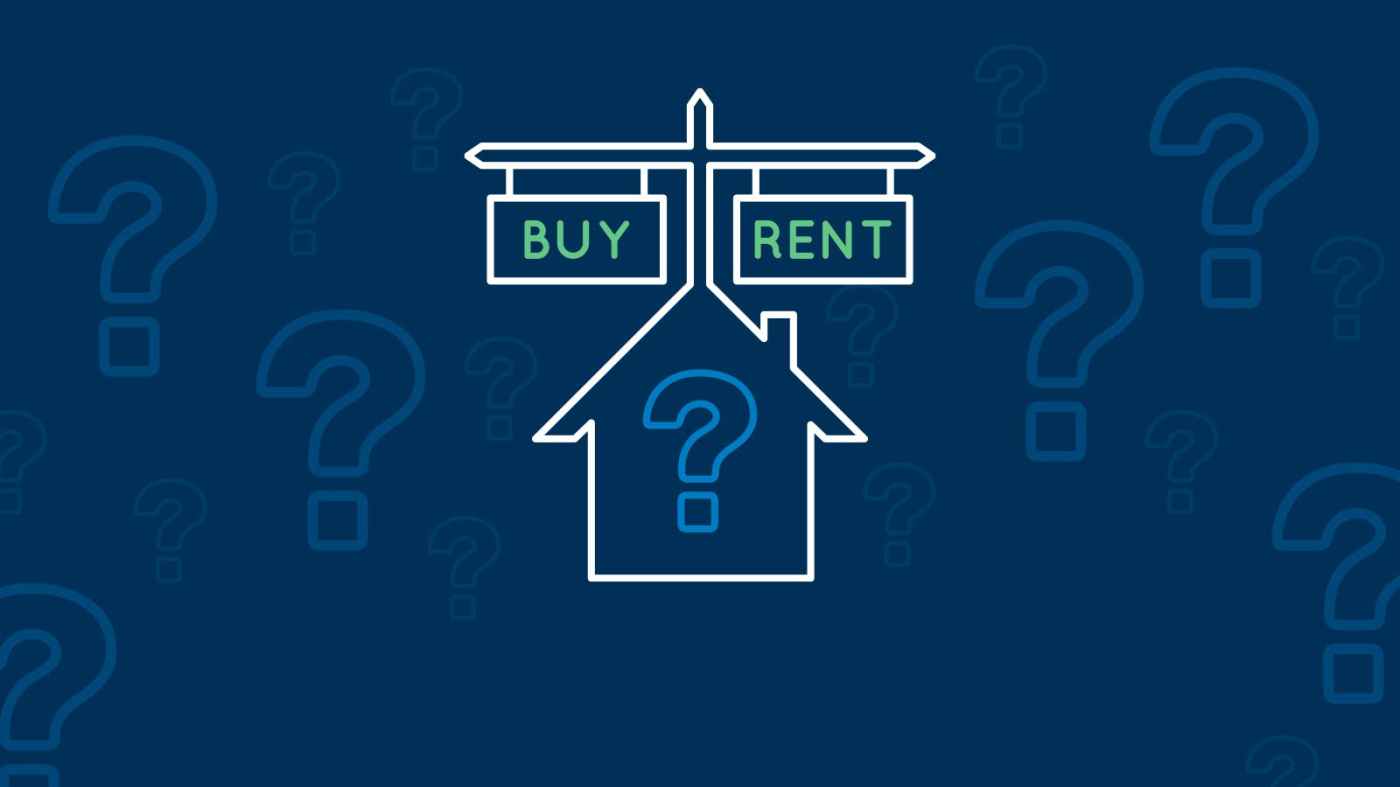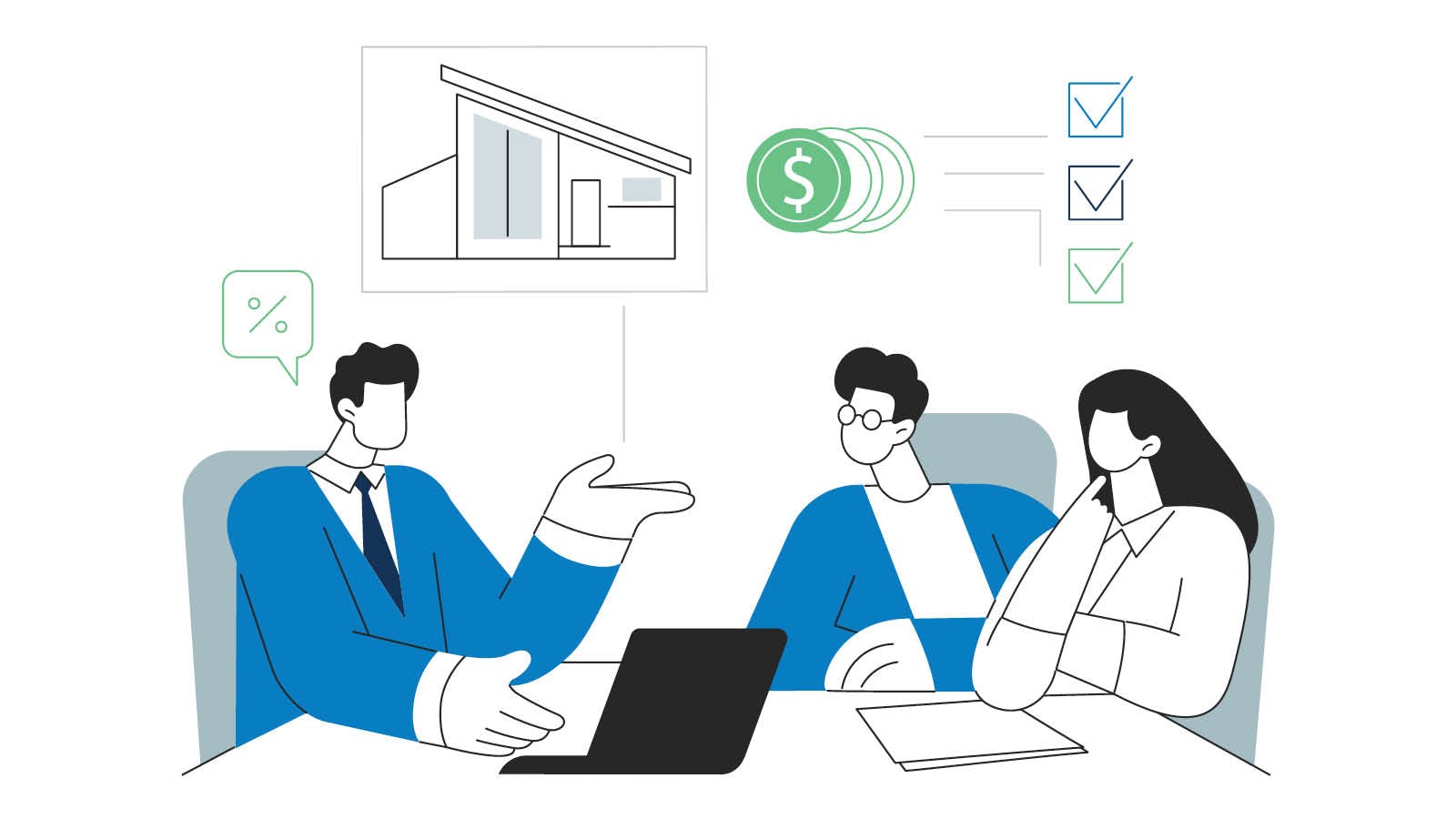What’s your budget?
Most renters are more than familiar with the first month, last month, deposit routine. You’ll likely also need to budget for utilities including water, electricity, gas, trash, cable and internet. Tenants may also pay more for parking, pet rent and other perks and, in some locations, rent prices may rival a monthly mortgage payment anyway.
Home buyers may need a chunk of change for a down payment. It may be wise to contribute as much as possible but if you qualify for certain programs, like a VA loan, you may be able to put as little as 0 down upfront. Home buyers will also be charged a monthly mortgage payment, made up of principal and interest amounts (and potentially an escrow payment for taxes and insurance), throughout the life of their loan. This monthly payment amount may change over time, based on loan type (if the rate is adjustable) property taxes and homeowner’s insurance. Don’t forget to add up potential hidden costs, such as homeowner’s association fees, closing costs and ongoing home maintenance expenses.
To get a clearer picture of your potential costs, consider using a home calculator tool like Freddie Mac’s.
What’s your timeline?
If you’re moving to a new city, taking on an unpredictable job or just don’t know which neighborhood is right for you, consider renting for the time being. Finding a flexible and affordable home option would free up time for you to determine what you like, explore neighborhoods, speak with real estate and mortgage professionals and compare all purchasing options.
If you’re ready to put down roots, consider making a purchase. Staying in one home for an extended period of time can build home equity, meaning you may be able to make a profit when it’s time to sell. Plus, if you lock in a fixed-rate mortgage, you’ll never have to worry about rising rent prices! And, every time tax season rolls around (given that you own your home), you may be eligible for certain tax benefits.
How do you feel about home maintenance?
Home repairs are a fact of life but, when renting, these costs are typically covered by the landlord or management company. Broken windows, faulty washing machines and, in some communities, even dead light bulbs can be purchased and replaced at your convenience. If you’re a hands-off person, you may enjoy the comfort of renting!
When the home is your own, however, you’ll likely be managing all repairs and ongoing maintenance. If you’re handy or just unopposed to hiring a handyman, buying could be the right choice you for. Just consider getting a home inspection at the time of purchase so you have a better sense of added expenses that may lie ahead.
What are your goals?
When deciding whether it’s better to rent or buy, consider what your current lifestyle is like and how you see it progressing in years to come. If you’re going through a divorce or doing some major downsizing, consider renting until you’ve adjusted to your new lifestyle. If you find your current budget limiting, rent and save until you have more flexibility.
If you’re getting married or growing your family, check out properties that will still feel like home in a few years. Or, if home ownership is simply a priority for you, get to purchasing your piece of the American Dream!
Is it better to rent or buy?
When it comes to the question, “is it better to rent or buy?”, there is no one right answer! Your budget, timeline, capabilities and goals will clue you into what could be the right choice for you, right now. If you still can’t quite decide, it never hurts to contact an experienced loan originator for some clarity on the costs of buying a home and what you might qualify for.
Published on November 20, 2019


